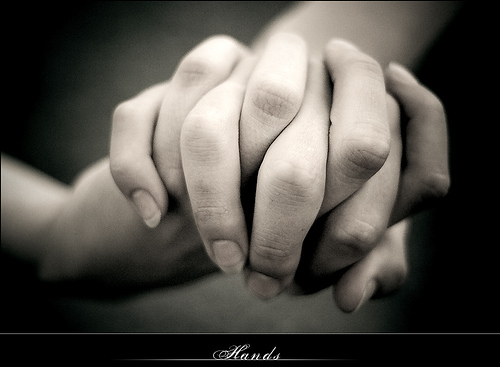Preached this sermon on Sunday, September 2nd at Spirit of Hope in Detroit. It comes from Song of Solomon, chapter 2, verses 8-13.

Words, words, words. What do
we do with our words. Can I start by talking about myself for a minute, or
something that happened to me? It has to do with words. I put up a blog posting
on the Huffington Post. Or, and I don’t say this to brag or whatever it may
sound like, but they asked me to write something specifically for the national
party conventions that started last week with the Republicans, and continues
this week with the Democrats. They wanted me to talk about poverty, and how we
think it will or won’t be covered by the major parties.
So, you know me well enough to know that when I write for
things like that, I can be a bit direct. Well, because sometimes we just need
to say what we need to say. People with lower income have less and less power
every year in this country, and at some point people are going to get together
and really change the way things work in this country, rise up, and maybe even
topple the powers that be. I used some more dramatic language than what I just
said now, but you get the idea.
You
may know that as on most news sites, there is a place at the bottom of the
article, or essay or blog to write comments. So some people wrote some
comments. In fairness some were supportive. But some were not so much. And
while I should know not to read the comments, well, I did.
In fact, I admit to having a minor obsession over checking
what people are saying about what I write. And, as you know, in internet
comments, it quickly becomes not just about what was said, but about the person
who wrote the article in the first place. Some insinuated that I should not be
a priest, and that I am a communist, and other such things. While my article
was certainly serious, there was a part of me that wanted the commentators to
take a chill pill. Relax for a minute.
It
happened because the people who wrote, at least in my estimation, refused to
address the issue of poverty with any sense of compassion, much less empathy.
But knowing that doesn’t really help me. These words, these hurtful words,
designed to be hurtful, got to me for a few minutes this week. Maybe words have
gotten to you sometimes. Maybe you have been attacked, whether by a total stranger
or by people who are very close to you. Maybe those words were intended to hurt
you, and maybe they were just carelessly put out there and intentional or not,
made you feel bad. Words have power. Some say sticks and stones may break my
bones but words will never hurt me. Well, I think words do hurt. We can ignore
some, even most bad words, but sometimes they get through. Sometimes they
affect us.
So
when I saw Song of Solomon this week for today’s scripture I was thrilled! You
have no idea. Or maybe you do. After all that ugly stuff here is something
beautiful. The beauty of God and love just poured out there! We get to talk
about love for just a minute. In fact, the surprise for me was, this is the
second time in a week I am preaching from this text. I preached this text last
Sunday afternoon at a wedding, on the Detroit River
Today
we get to read some love poetry from Song of Solomon, otherwise known as Song
of Songs.
You know we have an open mic here at Spirit of Hope, the
third Sunday afternoon of the month. Among all the things that come across the
stage we have some love poetry that comes to us at Spirit Spit Open Mic. While
I love poetry, sometimes, I hope I am not confessing too much here, I don’t
know the difference between good stuff and not so good stuff. To put it simply,
sometimes I know good poetry, and sometimes I don’t.
Especially when reading poetry, it is hard to know, at
least for me, what is good and what is bad. Are these beautiful amazing words
of love? “Arise, my love, my fair one, and come away; for now the winter is
past, the rain is over and gone.”
Are
these beautiful words, designed to transform love in our hearts, expressing the
deepest beauty of the soul, or is it an easy to memorize cheap poem recited after
a few drinks to manipulate you into bed. These are the things I don’t always
know? Don’t pretend you don’t understand what I am talking about. How many
people have used fancy words, luxurious words, words you thought someone wanted
to hear, but not necessarily what you actually meant, to get what you want?
What
if the people who put together the Bible put Song of Solomon in the Bible, so people
of faith would have a tool, a poem if you will, to help them go to bed with
someone? I wasn’t there. I don’t know why it was put in!
Song of Solomon is in the same category as Proverbs and
Ecclesiastes. None of these books talk often, and certainly not directly, about
God; and they really don’t talk about Jesus. They are laden with wisdom and
love and thanksgiving, and sage advice, observations about the world.
Wisdom literature is generally considered the parts of
scripture that are most feminine, and written in a more feminine voice that
other parts of scripture. In wisdom literature there are times when the male
actively pursues the female, almost aggressively. And there are times when,
well, the female actively pursues the male, almost aggressively. This part, in
the woman’s voice, saying, “come to me, come to me. It is spring, come out to me. Implying, my
arms are open. My heart is for you. Come to me, my love!
And the beats of Floetry start to groove in the background. "Loving you has taken time,
taken time, But I always knew you could be mine. I recognize the butterflies
inside me. Sense is gonna be made tonight, tonight. All you gotta do is say yes,
say yes, say yes." (from Floetry, "Say Yes")
Is it getting hot in here? Don’t look at me like that. This
is all scripture here. Don’t hide. See, we usually talk more easily about other
parts of Scripture, such as when God wants us to do something, or God does
something to us. But, can we handle it when all the Spirit is putting out there
through scripture words of intimacy, and love, and floetry, if you will?
Sometimes, maybe you have experienced this, the church
doesn’t always talk well about intimacy, and sex and love and how people get
close. We do but we don’t. We give a long list of the things you are not
supposed to do. But we don’t talk about the things that God wants us to
experience. I hope you hear that we are beyond just romantic love here, beyond
what it means to love a husband or wife, though that is in here too. As is
evident in this scripture, as well as in the rest of Song of Solomon, and
Proverbs, and Ecclesiastes, God uses words to help us get closer to one
another. God uses words to bring us closer to the Spirit. Intimately. Sharing
ourselves. Sharing our deepest, most distant secrets, and feelings. You know,
the things we have shoved so far away that we forget sometimes that they are
even there.
Intimate, like Jesus touching those he is healing.
Intimate, like praying with someone at their bedside when they are sick.
Intimate, like laying hands on those who need to know they are anointed by the
Spirit. Intimate, like us working together, doing the love of God in our
community. Getting to know one another not just as people across the aisle on
Sunday morning, but as sisters and brothers.
That’s why I love these words. Oh, these words do amazing
things. These are good words. Good words of invitation. Good words that balance
the sharp, biting, noise that comes across our television screens, that are
pointed at us when we are in conflict, that are used to harm and hurt you, or
us, or your neighbor. Good words are here. Good, loving words. And they are
saying, come in, come closer, come to know me, come along. The winter is over,
it is time for spring!
Words that reflect the relationship that God has with us.
The relationship that Jesus, and the Holy Spirit have with us. So close to us.
So intimate. Never with a word that will harm you. Never with a word to make
you feel ugly or insignificant. Never with a word that makes you feel less than
you are. Never with a word to turn you with anger or hatred to your neighbor.
Never with a word that moves you away from God, but only closer.
Come into the space with good words. Loving words, and a
loving spirit. This is the place where words should not hurt you. And they lead
you to the living word. Lead you to the word of peace. Lead you to the word of
freedom. Lead you to the word of righteousness. That one word, that we say.
That name Jesus. That means more than any other word we can utter. In that
word, we have everything we need. Maybe not to fix everything that is wrong in
our lives, but that leads us to peace. That loving word. That intimate word.
I
invite you today to know that word, and be doers, and not just hearers. You are
invited into the Spirit. Invited into the love. God is proposing to you today.
All you gotta do is say yes, say yes, say yes.












